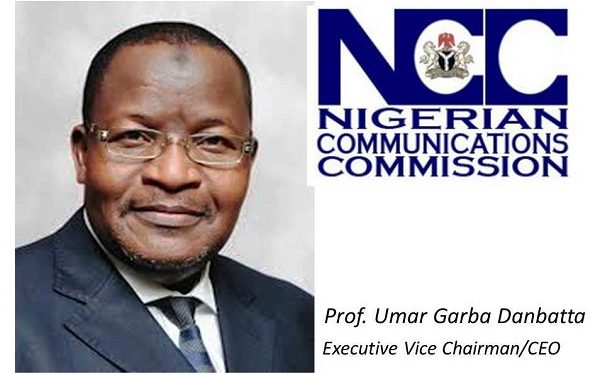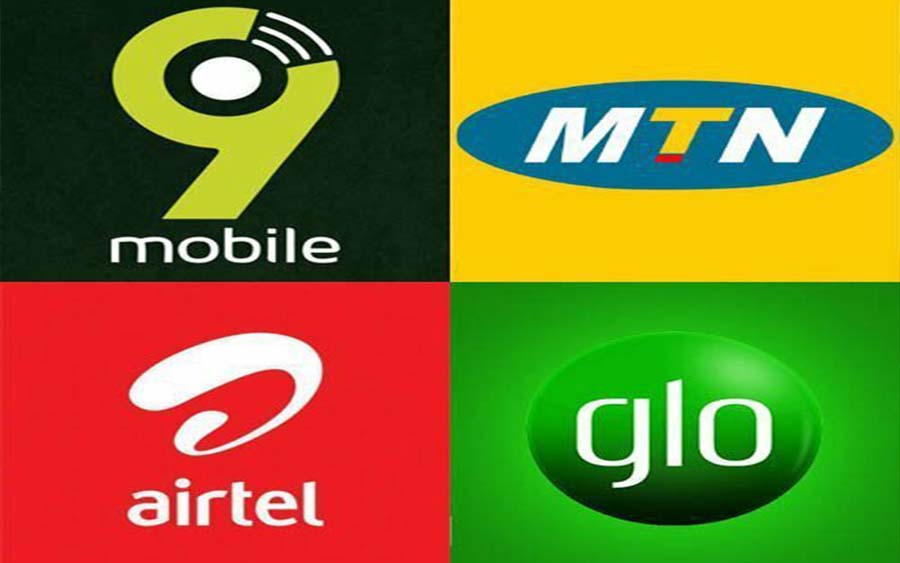In recent days, the Naira has slumped six times against the Dollar in the foreign exchange market.
Business
Anxiety, confusion over NCC’s shut down letter

A leaked letter allegedly from the Nigerian Communications Commission (NCC) directing all telecommunications providers to shut down services in Zamfara State from September 3 has generated anxiety and confusion within the industry.
Many Nigerians are also anxious following the refusal of the NCC to confirm the authenticity of the letter.
The letter addressed to the Chief Executive Officers of the telecoms companies, a copy of which was sighted by The Nation, said the decision to shut down facilities is “to enable relevant security agencies to carry out required activities towards addressing the security challenges in the State.”
However, attempts to confirm the authenticity of the letter from the Director of Public Affairs of the NCC, Dr Ikechukwu Adinde, failed.
He did not respond to inquiries up to the time of filing this report.
Other sources within the NCC top echelon simply refused comment on the matter.
The letter titled: “Re: Shutdown of all telecom sites in Zamfara State” was signed by the Executive Vice Chairman of the NCC, Prof. Umar Garba Danbatta.
It reads: “The pervading security situation in Zamfara State has necessitated an immediate shut down of all telecom services in the state from today, September 3, 2021.”
Specifically, the letter sighted by our correspondent, which was addressed to the Chief Executive of Globacom networks, directed the operators “to shut down all sites in Zamfara State and any site(s) in neighbouring states that could provide telecommunications service in the State. The site shutdown is for two weeks (September 03-17, 2021) in the first instance. Your urgent action in this regard is required.”
While the directive was specific about Zamfara State, it made reference to any other facilities in any site(s) in neighbouring States that could provide telecommunications service in Zamfara, a development that has generated anxiety that States bordering Zamfara such as Katsina, Sokoto and Kaduna could be affected by the directive.
Business
BDCs blame peer-to-peer Binance, others for naira fall

BDCs blame peer-to-peer Binance, others for naira fall
The president of the Association of Bureau De Change Operators of Nigeria, BDCs, Aminu Gwadabe, says BDC operators are committed to preventing speculators from attacking the naira.
Mr. Gwadabe said this in an interview on Wednesday in Abuja.
The Association of Bureau De Change Operators of Nigeria, as a self-regulatory body, has platforms to check the excesses of BDC operators, he noted.
“We have inaugurated state chapters whereby we can have a database of participants in the forex market. This is for the Financial Action Task Force (FATF) to understand this market and to know the participants; give them a simple registration,” he said.
Mr. Gwadabe said that the foreign exchange market needed a kind of harmonisation, centralization, and KYC to identify all business participants.
“This will enable the CBN to track other players in the market other than the BDCs and their levels of involvement. The BDCs is collaborating with the regulatory authorities for physical verification of offices using technology.
READ ALSO:
- MTN, Airtel, others set to increase call, data tarrif
- Netizens mock prophet who prophesied world will end today
- Bullying: Tacha accuses Nigerians of ‘selective outrage’
“We want to balance international obligations with our own objectives. International obligations are templates that have been built without our input. We are coming up with our own template to balance it. We have seen some illegal economic behaviour, and the CBN and the security agencies are aware, and I am sure they will nip it in the bud,’’ he added.
He said the recent wave of naira depreciation was of concern to the BDC operators.
Mr. Gwadabe explained, “I am happy that the authorities, and even the BDCs as operators, have identified the peer-to-peer (P2P) platform. P2P is a platform like Binance where speculators use the dollar to buy USDT, a stablecoin that is pegged at one to the dollar.
“As long as Binance and such other platforms continue to be profitable, the naira will continue to depreciate. There are many of them in the system. Binance has been nipped in the bud, but there are still many. They are online platforms with no registration or restrictions.”
Mr. Gwadabe said that the CBN and the security agencies were already aware of the antics of the platforms. According to him, they are more of an illegal form of economic behaviour, and the people behind them lack patriotism.
“People have turned the dollar into an asset—a commodity of trade—which is why those platforms continue to thrive. We have seen where people are buying dollars into their domiciliary accounts to finance these schemes. A lot of millions of dollars are going out of the system. It is one USD to one USDT. The market can be liquid.
“Binance alone has four billion dollars of liquidity and more than two million transactions. Most of them source money to finance their transactions on the open market, and that is one of the reasons why the naira is depreciating,’’ he said.
BDCs blame peer-to-peer Binance, others for naira fall
Business
MTN, Airtel, others set to increase call, data tarrif

MTN, Airtel, others set to increase call, data tarrif
Telecommunications companies operating in Nigeria have begun moves that will see to an increase in call tariff in the country.
The companies which include Glo, MTN, Airtel and 9Mobile are asking the federal government to facilitate constructive dialogue in the industry.
According to the telcos, the current price control mechanism is not in tandem with the economic realities, thus seeking the government’s intervention in order to address pricing challenges.
The four telecommunications giants said they were the only ones that have not reviewed their prices which threaten the industry’s sustainability and possibly erodes investors’ confidence.
They made this known in a joint statement by the Association of Licensed Telecommunications Operators of Nigeria (ALTON) and Association of Telecommunication Companies of Nigeria (ATCON) on Thursday.
According to the statement signed by ALTON Chairman, Mr Gbenga Adebayo, and ATCON President, Mr Tony Emoekpere, there has not been a general service pricing framework upward in the past 11 years.
They attributed the non-increment to regulatory constraints despite the adverse economic hardship.
READ ALSO:
- Judge absent in Fayose N6.9bn fraud case, matter adjourned to July 1
- In fresh attack, bandits invade two Zamfara communities, kill three, abduct many
- Unite against Israel to better humanity, Fani-Kayode task Christians, Muslims
They said: “For a fully liberalised and deregulated sector, the current price control mechanism, which is not aligned with economic realities, threatens the industry’s sustainability and can erode investors’ confidence.
“Despite the adverse economic headwinds, the telecommunications industry remains the only industry yet to review its general service pricing framework upward in the last 11 years, primarily due to regulatory constraints.
“Government needs to facilitate a constructive dialogue with industry stakeholders to address pricing challenges and establish a framework that balances consumers’ affordability with operators’ financial viability.”
The telcos also expressed concerns on the worsening security challenges affecting the productivity of the services provided, urging the federal government come up with measures to tackle the menace.
“Telecom infrastructure undisputedly plays a pivotal role in Nigeria’s national security and socioeconomic growth, especially as the country currently contends with multiple security challenges that require urgent and immediate actions in response to these threats.
“Attacks on cell towers, fibre optic cables, and other critical assets disrupt telecommunications services and result in significant financial losses for operators. We urge the government to prioritise the security of telecommunications infrastructure and collaborate with law enforcement agencies to enhance protection measures and combat vandalism and sabotage effectively.
“The industry also requires substantial investments in network expansion, maintenance, and technology upgrades,” they said.
MTN, Airtel, others set to increase call, data tarrif
Business
Naira continues fall against dollar despite CBN $10,000 to BDCs

Naira continues fall against dollar despite CBN $10,000 to BDCs
The Naira has failed to appreciate against the US dollar at the foreign exchange market despite the Central Bank of Nigeria’s recent additional release of $10,000 to Bureau De change operators.
FMDQ data showed that the Naira recorded another drop to N1308.52 per Dollar on Wednesday compared to N1,300.15 exchanged on Tuesday.
On a day-to-day basis, this represents an N8.37 drop from N1,300.15 per Dollar it traded on Tuesday.
In the parallel market section, the Naira was sold at between N1,250 and N1,300 on Wednesday from N1230 on Tuesday.
READ ALSO:
- Worry as long queues return to Abuja filling stations, five other states
- Iranian rapper sentenced to death for supporting anti-hijab protests
- Reno’s challenge: Peter Obi admits he didn’t build any school in Anambra, gives reasons
The development comes despite the Central Bank of Nigeria releasing 10,000 dollars each to BDC at N1,021 to a dollar with a caveat to sell at most 1.5 per cent above the bought price.
This is the third recent intervention for BDCs amid the bank’s effort to defend the Naira.
However, despite the FX rate record, the official window rate still surpassed the parallel market by N8.52.
Meanwhile, on Wednesday, the National President of the Association of Bureau De Change Operators of Nigeria, Aminu Gwadabe, blamed peer-to-peer cryptocurrency platforms like Binance for the recent depreciation of the Naira against the Dollar in the foreign exchange market.
-

 Education5 days ago
Education5 days agoWhy we charge N42m fees for primary school pupils — Charterhouse Lagos
-

 News7 days ago
News7 days agoUpdated: More trouble for Yahaya Bello as Immigration places him on watch list
-

 Auto5 days ago
Auto5 days agoWe expect massive roll-outs of Nigeria-made cars by December 2024 – Minister
-

 International7 days ago
International7 days agoUpdated: Tragedy hits Kenya, Defence chief, nine others die in military helicopter crash
-

 metro5 days ago
metro5 days agoJUST IN : Borrow pit collapses, kills seven Qur’anic school pupils
-

 News4 days ago
News4 days agoWe’re not part of Yoruba Nation agitation, says MKO Abiola family
-

 metro3 days ago
metro3 days agoHow gunmen killed Babcock university lecturer, abducted two – Police
-

 Politics5 days ago
Politics5 days agoOndo APC primary: Ododo, gov aspirant in open confrontation










